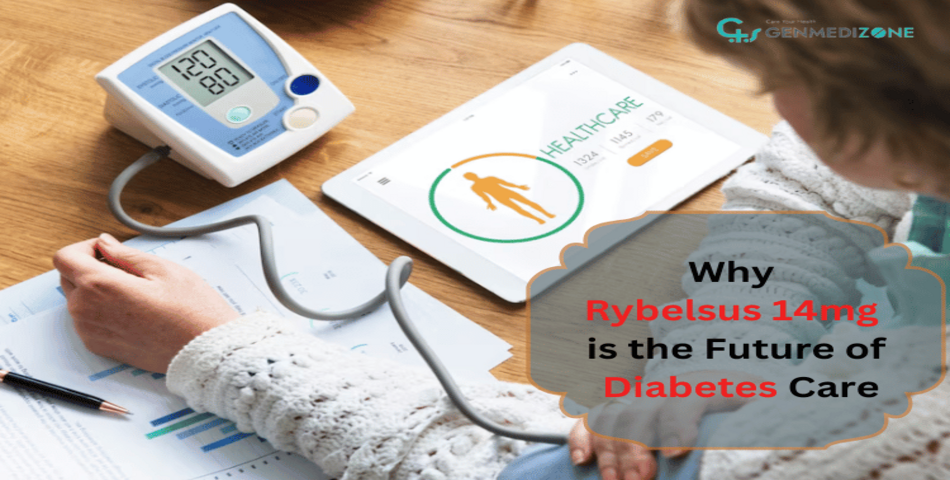Why Rybelsus 14mg is the Future of Diabetes Care

Introduction to Semaglutide
Semaglutide is an innovative pharmaceutical agent that has garnered significant attention in the medical community. It is primarily used for the management of type 2 diabetes and obesity. As a glucagon-like peptide-1 (GLP-1) receptor agonist, Rybelsus 14mg mimics the action of incretin hormones, which stimulate insulin secretion in response to food intake, thereby regulating blood sugar levels. This article delves into the multifaceted benefits, mechanisms, and clinical applications of semaglutide, offering a thorough understanding of its role in modern medicine.
Mechanism of Action
rybelsus 14 mg works by binding to the GLP-1 receptors in the pancreas. This binding action enhances the secretion of insulin while simultaneously inhibiting the release of glucagon, a hormone that increases blood glucose levels. The result is a significant reduction in postprandial (after meal) and fasting blood sugar levels. Additionally, semaglutide slows gastric emptying, which helps control appetite and contributes to weight loss in obese patients.
Clinical Efficacy in Type 2 Diabetes
Blood Glucose Control
Clinical trials have demonstrated that Rybelsus 3 mg is highly effective in lowering HbA1c levels, a key marker of long-term blood glucose control. Patients receiving semaglutide often experience a substantial reduction in HbA1c, bringing it closer to the target levels recommended by diabetes management guidelines.
Cardiovascular Benefits
Semaglutide has also been shown to offer significant cardiovascular benefits. Studies have indicated a reduction in major adverse cardiovascular events (MACE) such as heart attack, stroke, and cardiovascular death among patients with type 2 diabetes who are treated with semaglutide. This makes it a valuable option not only for glycemic control but also for cardiovascular risk reduction.
Weight Management in Obesity
Semaglutide 14mg has gained approval for use in weight management due to its potent effects on body weight. It promotes weight loss by enhancing satiety and reducing caloric intake. Clinical studies have revealed that patients treated with semaglutide experience significant weight loss compared to those on placebo, making it a promising treatment for obesity.
Administration and Dosage
buy online Semaglutide 14mg tablets is available in two forms: injectable and oral. The injectable form is administered once weekly, while the oral form is taken once daily. The flexibility in administration options helps cater to patient preferences and improves adherence to the treatment regimen.
Starting Dosage
For diabetes management, the typical starting dose is 0.25 mg injected once weekly, which is gradually increased to 1 mg once weekly to optimize glycemic control. For weight management, a higher dose, up to 2.4 mg once weekly, is recommended.
Side Effects and Safety Profile
Common Side Effects
Common side effects of semaglutide include gastrointestinal symptoms such as nausea, vomiting, diarrhea, and constipation. These side effects are generally mild to moderate and tend to decrease over time as the body adjusts to the medication.
Serious Side Effects
While rare, serious side effects can occur. These include pancreatitis, gallbladder disease, and renal impairment. It is crucial for patients to be monitored regularly by their healthcare provider to ensure any adverse effects are promptly addressed.
Contraindications
Semaglutide is contraindicated in patients with a history of medullary thyroid carcinoma or multiple endocrine neoplasia syndrome type 2. It should also be used with caution in patients with a history of pancreatitis.
Comparative Effectiveness
When compared to other GLP-1 receptor agonists, semaglutide stands out due to its superior efficacy in both glycemic control and weight reduction. It has shown greater reductions in HbA1c and more significant weight loss compared to liraglutide, another widely used GLP-1 receptor agonist.
Patient-Centric Benefits
Improved Quality of Life
Patients treated with semaglutide often report an improved quality of life. The medication’s ability to control blood sugar levels and promote weight loss can lead to increased energy levels, better physical mobility, and enhanced overall well-being.
Convenience
The once-weekly injection or daily oral tablet offers convenience, reducing the burden of frequent dosing and potentially improving adherence. This can be particularly beneficial for patients who struggle with daily medication regimens.
Future Directions and Research
Ongoing research aims to explore the full potential of semaglutide. Studies are investigating its use in non-diabetic populations for weight management and its potential benefits in other metabolic disorders. Furthermore, the development of new formulations and delivery methods may enhance its efficacy and patient acceptance.
Conclusion
Semaglutide represents a significant advancement in the treatment of type 2 diabetes and obesity. Its dual benefits of glycemic control and weight loss, coupled with its cardiovascular protective effects, make it a valuable therapeutic option. As research continues to evolve, semaglutide’s role in managing metabolic disorders is likely to expand, offering new hope to patients struggling with these conditions. you can buy Semaglutide 14 mg Rybelsus 14 mg here www.genmedizone.com
Category: Health Tips
